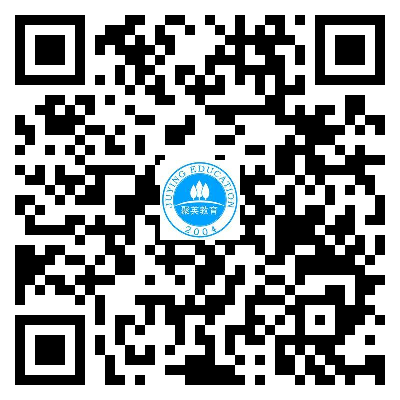作者:聚创考研网-小厦老师
点击量: 1179
发布时间: 2018-05-11 10:57
【微信号:扫码加咨询】

经济学人:过剩学问:产能过剩和产能不足(3)
Economics Brief Six Big Ideas
经济学简介 六大经济学理论
Glutology:Overcapacity and undercapacity
过剩的学问:产能过剩和产能不足

To grasp Say's point requires two intellectual jumps.The first is to see past money, which can obscure what is really going on in an economy.The second is to jump from micro to macro, from a worm's eye view of individual plants and specific customers to a panoramic view of the economy as a whole.
译文
理解萨伊的要点需要两种学术方面的提升。首先,要看透钱,它能够屏蔽经济体中真正正在发生的事情。其次,要从微观上升到宏观,从单个工厂和个别客户的狭隘视角上升到把经济体作为一个整体的宏观视角。
Firms, like coal plants and cotton mills, sell their products for money.But in order to obtain that money, their customers must themselves have previously sold something of value.Thus, before they can become a source of demand, customers must themselves have been a source of supply.
译文
如同煤矿和纺织厂一样,公司销售产品是为了钱。但是,为了得到这些钱,他们的客户必须自己先卖出某种值钱的东西。因而,在他们可能成为需求之源之前,客户必须自身就是供给来源。
What most people sell is their labour, one of several “productive services” on offer to entrepreneurs.By marshalling these productive forces, entrepreneurs can create a new item of value, for which other equally valuable items can then be exchanged.It is in this sense that production creates a market for other products.
译文
大多数人出售的是他们的劳动力,这种提供给实业家的多项“生产性服务”之一的东西。通过组织管理这些生产性服务,实业家能够生产随后能够用以交换其他等价物的新产品。正是在这种意义上,生产创造出对其他产品的市场。
In the course of making his merchandise, a producer will pay wages to his workers, rent to his landlord, interest to his creditors, the bills of his suppliers and any residual profits to himself.These payments will at least equal the amount the entrepreneur can get for selling his product.The payments will therefore add as much to spendable income as the recipients' joint enterprise has added to supply.
译文
在生产货物的过程中,生产方将要付给工人工资、房主租金、债权人利息。同时还要支付供给方的账单以及付给自己的任何剩余利润。这些支付至少要等于实业家从销售产品中所能得到的总钱数。因而,这些支付将带来与接收方的合伙企业带来的供给增加一样多的可支出收入的增加。
That supply creates demand in this way may be easy enough to grasp.But in what sense does supply create its “own” demand?The epigram seems to suggest that a coal plant could buy its own coal—like a subsistence farmer eating the food he grows.
译文
供给是以这种方式创造需求的,这一点可能是很容易理解的。但是,供给是在何种意义上创造它“自身的”需求呢?这一警句似乎是想表明,煤矿可能购买自己的煤——就像自给自足经济中的农民吃自己种的粮食一样。
In fact, of course, most producers sell to, and buy from, someone else.But what is true at the micro level is not true at the macro level.At the macro level, there is no someone else.The economy is an integrated whole.What it purchases and distributes among its members are the self-same goods and services those members have jointly produced.
译文
当然,实际上,大多数生产方既向别人销售,也从别人那里购买。但是,在微观层面是正确的,在宏观层面就不正确了。在宏观层面,没有所谓的他人。经济体是一个融和的整体。它在自己成员中购买和分配的是这些成员联合生产出来的完全一样的商品和服务。
At this level of aggregation, the economy is in fact not that different from the subsistence farmer.What it produces, what it earns, and what it buys is all the same, a “harvest” of goods and services, better known as gross domestic product.
译文
在集合体的这个层面上,经济体实际上不是那么有别于自给自足经济中的农民。它所生产的、所赚取的,所购买的全都是相同的,是商品和服务的“收成”,即更为人们所熟知的国内生产总值(gross domestic product)。
How then did Say explain the woes of his age, the stuffed warehouses, clogged ports and choked markets?He understood that an economy might oversupply some commodities, if not all.That could cause severe, if temporary, distress to anyone involved in the hypertrophied industries.
译文
那么,萨伊是如何解释他的时代的种种痛苦——满满的仓库,拥挤的港口和窒息的市场——的呢?他知道,经济体可能过度供给某些商品,即便不是全部。这可能给任何参与到过度发展行业中的人造成虽说短暂、但却是严重的伤害。
But he argued that for every good that is too abundant, there must be another that is too scarce.The labour, capital and other resources devoted to oversupplying one market must have been denied to another more valuable channel of industry, leaving it under-resourced.
译文
但是,他指出,对于每一种泛滥的商品,必定有稀缺的另一种。被奉献给过度供给一个市场的劳动力、资本和其他各种资源对另一个更有价值的行业渠道来说,必然是不予接受的,从而使其处于资源供给不足之中。
注释
1.as a whole 作为整体
例句:We must consider these matters as a whole.
我们必须全盘来考虑这些事情。
2.known as 被称为
例句:China has always been known as a land of propriety and righteousness.
中国从来以礼义之邦著称。
3.In fact 实际上
例句:In fact, those people have been promoted.
事实上,那些人已经升职了。
4.at least 至少
例句:He's been away for at least a week.
他走了总有一个星期吧。
推荐阅读:
1、超强考研经验分享!教你如何拿到免费的考研资料和历年真题!
2、保研通过秘诀!手把手教你写保研夏令营申请材料
以上是聚创考研网为考生整理的"每日一篇:《经济学人》读译参考 Day20"的相关考研信息,希望对大家考研备考有所帮助! 备考过程中如有疑问,也可以添加老师微信H17720740258进行咨询。




